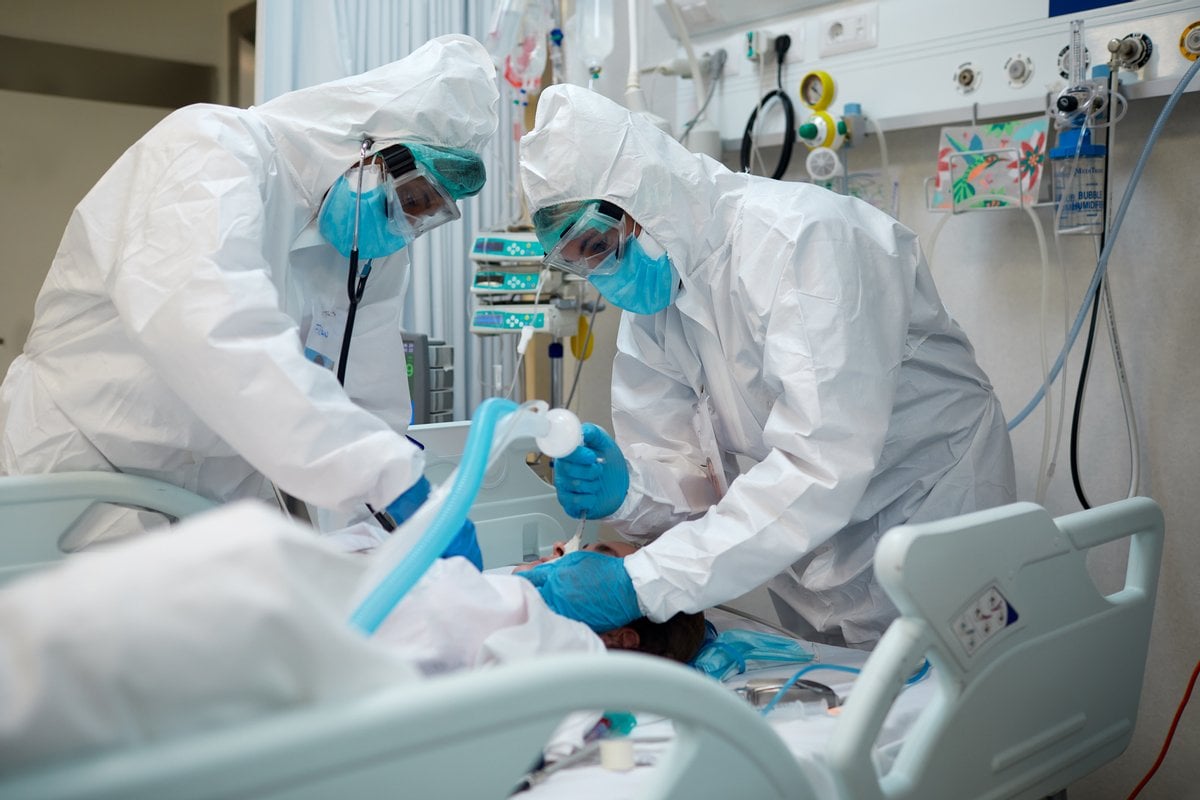
Can you imagine feeling as if you’re slowly drowning, unable to breathe, unable to ask for help? I don’t have to imagine it because this is exactly what I experienced as an intubated patient on a ventilator last week.
I was having an emergency surgery, but I was so unwell going into it that as soon as I was put under anaesthetic, in the few seconds before the tube went in, I vomited.
That vomit aspirated into my lungs. The surgery was a life-saving procedure, so it had to go ahead, regardless.
Watch: Signs To Use When Talking About Covid. Post continues below.
Immediately afterwards I was taken to ICU, and I was ventilated for a total of 17 hours.
Like everyone else, I’ve seen the frightening footage of COVID-19 patients on ventilators. It looks awful but you can’t begin to imagine just how awful it actually is until you’ve experienced it for yourself, so let me paint a picture for you.
For a start, those patients on TV may not all be unconscious the whole time. I was sedated but not fully knocked out.
Sedation levels go up and down for a number of reasons. In my case, my blood pressure was out-of-control, racing between a systolic rate of 70 and 210 within minutes. It was too dangerous to keep me that way so the sedation had to be lightened.

